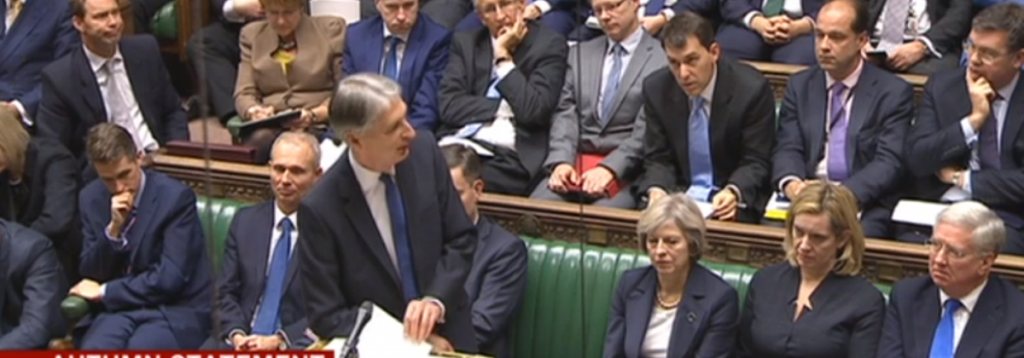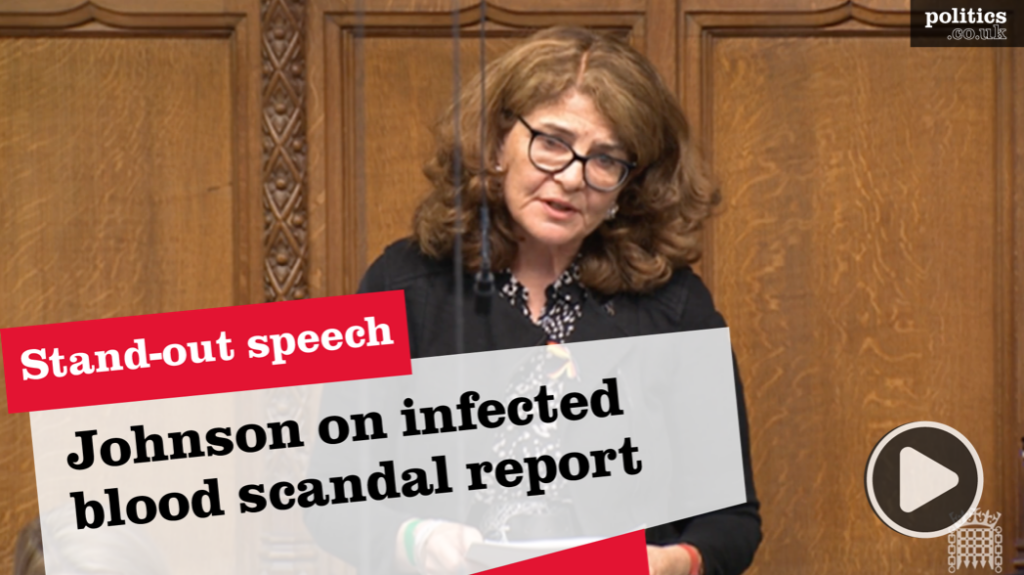Finally we have concrete details of the price of Brexit. Today’s autumn statement saw the chancellor reveal the Office of Budget Responsibility’s (OBR) forecasts for the year ahead. They obviously don’t know the exact deal and admit themselves that there is more uncertainty around than usual. But the findings are very troubling nonetheless.
We are going to lose 2.4% of economic growth in the next five years. Borrowing is going to be £122 billion higher this parliament than expected before Brexit. It’ll hit £68.2 billion this year and £59 billion next year compared with the previous forecast of £55.5 billion and £38.8 billion in the spring.
Back in March, we were expecting Britain to enjoy a surplus of £10 billion in 2019/20. That has now been downgraded to a £30 billion deficit.
Those OBR growth downgrades – due to weaker investment and lower consumption due to expected inflation hit from £ fall #AutumnStatement pic.twitter.com/tSjb7xLXKP
Featured Supervising provisionally registered dentists will increase workload and accountability, DDU says
Featured Cumbria Police on track to reduce the backlog
— Ben Chu (@BenChu_) November 23, 2016
Public sector net debt as share of GDP will hit an eye-watering 90.2% of GDP in 2017/18. Previously the peak for national debt was expected to be 83% of GDP.
Here's a chart to show what the UK's new borrowing forecasts look like showing the downgrade since the Brexit vote https://t.co/4u37h8wsJt pic.twitter.com/F2pZGmqsig
— FT Westminster (@ftwestminster) November 23, 2016
George Osborne’s timetables for eradicating the deficit are gone. Hammond was reduced to promising he’d get the finances back in balance “as soon as practicable”.
Hammond's three new rules #AutumnStatement pic.twitter.com/tzKIerpkgC
— James Andrews (@FinanceJames) November 23, 2016
Why is this happening? Because there will be less investment, weaker consumer demand, greater uncertainty and higher inflation as a result of sterling depreciation.
Not all of this is due to Brexit, of course. And predictably Brexit supporters are already trying to heap the blame somewhere else. But there is a certain tiresome absurdity to watching them act all coy about the rather significant economic event which took place between the March forecasts and these ones.
Note how the Brexit camp trying to evade responsibility for their dismal actions…. prepare for lots more of this over coming months https://t.co/TKNRetw96z
— Ian Birrell (@ianbirrell) November 23, 2016
If you want the OBR's forecast of Brexit impact on public finances, this table much more useful than the £220bn figure some are using. pic.twitter.com/enPcc3njzG
— Jonathan Portes (@jdportes) November 23, 2016
We are seeing the reality of Brexit: Slower growth, higher borrowing, falling tax receipts and soaring inflation.
It’s going to get worse. Any forecast for the Brexit period itself is going to radically change depending on the deal and events in the meantime. 2019/20 is now Year Zero for the British economy. Unless there is a change in the government’s Brexit strategy that is the year we will drop out the EU.
Let’s not pretend we’ll have a trade deal by then. We won’t. If we do it will be a bad deal on tariffs and even that is highly unlikely. The Europeans themselves plan to defer trade talks for months, until the tail end of the Article 50 process. And even if they didn’t, Canada took seven years for a deal which was primarily about goods, not the much-more-complicated services upon which the British economy is based. On the current timetable, Britain will experience a chaotic hard Brexit in March 2019.
That means the sudden imposition of tariffs on goods, including 10% on cars and stratospheric levels for many foods. It means that mutual recognition systems, which allow goods to travel freely over borders – both from the UK to Europe, and from the UK to other major economies – will go offline, leading to blockages across the trading network. It means sudden regulatory chaos at home as we struggle to work out where to get authorisations for new products – from the EU regulator, as per the Great Repeal Bill, or from the courts, or from domestic bodies. It means a migration of financial services from here to the continent, as investment banks set themselves up in countries where they can still sell their financial products.
But it’s not just the trade effect of Brexit which will hurt us. Britain will be damaged by its relentless focus on reducing immigration. Take that new forecast 90.2% public sector debt figure. In the OBR’s 2013 fiscal sustainability report, they found that maintaining immigration was a key condition for keeping that figure under control.
If immigration continued at 140,000 a year, they found, the public sector net debt to GDP ratio would reach 99% by 2062-63. But if immigration was reduced to zero it would balloon to 174%.
Why? Because Britain has a demographic problem. People’s economic lives look like this: We cost the state money in childhood and old age, and contribute to it in our working years. Immigrants arrive after their early years, so we get those bits free. Many of them leave for their older years, so we often get those bits free too. As the OBR put it:
"These results are driven by the assumed age structure of net migration, which tends to be more concentrated in the working age group and hence reduces the dependency ratio throughout the projection period."
This is the reality of our predicament. It is not just that Brexit – especially of the hard, chaotic variety currently favoured by government – is economically damaging. It is that this entire reactionary, nativist surge, this angry resentment of the world, of free trade and free movement, is itself damaging to our country and our economic well being.
This is just the start. Unless Britain changes course we are all going to be much, much poorer.
Ian Dunt is the editor of Politics.co.uk. His book – Brexit: What The Hell Happens Now? – is now available from Canbury Press.
The opinions in politics.co.uk's Comment and Analysis section are those of the author and are no reflection of the views of the website or its owners.












